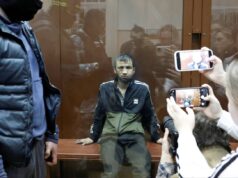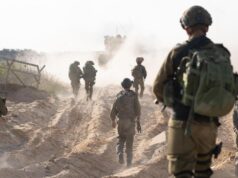Sesame Street is finding a new home in Pakistan. This month, a Pakistani version of the long-running kids TV show will air for the first time after Washington bankrolled the initiative with $20 million. Called Sim Sim Hamara, or Our Sim Sim, the show will focus on tolerance and equality, especially when it comes to women and ethnic minorities, with the hopes of fighting an increasing influence in radical ideologies.
Since first airing in America in 1969, the U.S. government has worked with the creators of Sesame Street to produce shows for some 21 other countries, many of which have endured decades of conflict. The show now airs from Israel to India to Northern Ireland to Kosovo with the hopes of teaching children not only their numbers and letters, but ideas such as equality, health, safety, cooperation, and coping with loss.

A Pakistani artist gives the final touches to characters of Sim Sim Hamara. |
In Pakistan, where 65 million children are under the age of 15 and roughly a third of those aged 5-9 do not attend school, the four-year U.S.-funded project will produce 78 episodes for TV in Urdu, 52 TV episodes in four other languages, 130 radio episodes in 5 languages, an interactive website, 30 educational school fairs, 78 children’s songs, 600 live puppet shows, and 600 mobile screenings. The show will be tweaked for the local audiences to appeal to children of different regions and cultures, and all characters will be original for Sim Sim Hamara — except for Elmo.
While some have questioned the necessity of such a pricey program at this time, there’s no doubt that Washington needs to do more to win over the hearts and minds of youngsters, as well as educate them in the notions of tolerance and democracy, in countries where radical elements are strengthening their grip. If successful, the program could do much to help U.S. efforts in its battle against anti-Americanism and extremism in Pakistan.





